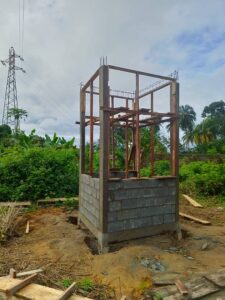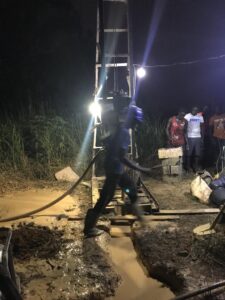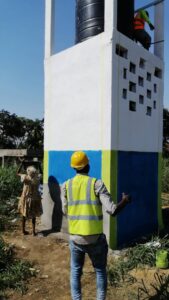“Solar well” in the village of Pitti Dibamba
Even today, the human right to access clean drinking water, which has been guaranteed since 2010, is not the rule – quite the opposite. According to the latest estimates by UNICEF, around 700 million people are excluded from this right and around 4 billion people, i.e. two thirds of the world’s population, do not have enough water available for at least one month of the year, so that they suffer from severe water shortages. Water is our most important basis for life, but it is a scarce resource. There are about 1.6 billion cubic kilometers of water on our blue planet, but only 35 million cubic kilometers of it is fresh water.
The population in Pitti Dibamba (Cameroon) is no exception. The village communities live mainly from agriculture and chicken farming. The water from a river branch, a pond or an open draw well is turbid water that contains disease-causing germs. The farther away the water is, the more difficult the living conditions are. Thus, diseases can easily spread and kill many people in developing countries every year. Diarrheal diseases occur repeatedly in different regions and lead to high child mortality.
Implementation of our “Solarbrunnen” project for the population of the village Pitti Dibamba. The project consists of the construction of a solar-pumped borehole in this Banen locality, which is facing enormous difficulties due to the increased lack of drinking water. Bunong e.V. in collaboration with our partner Bunong Cameroon and with the support of our sponsors have made it possible to implement the “Solarbrunnen” project (solar pump borehole). Here are the first pictures of the work.


